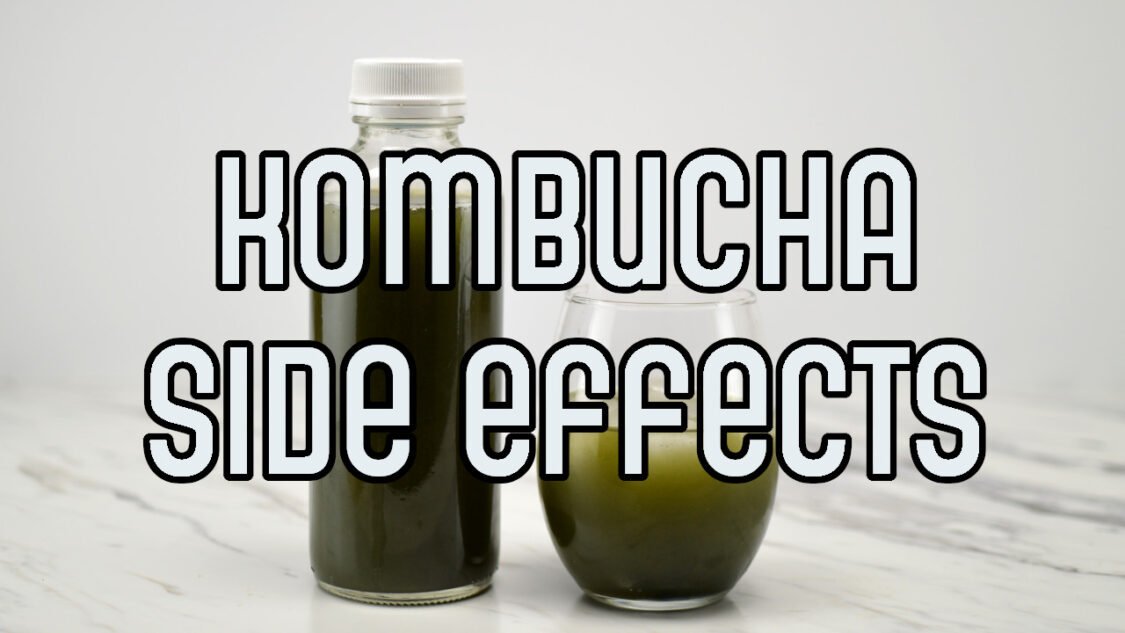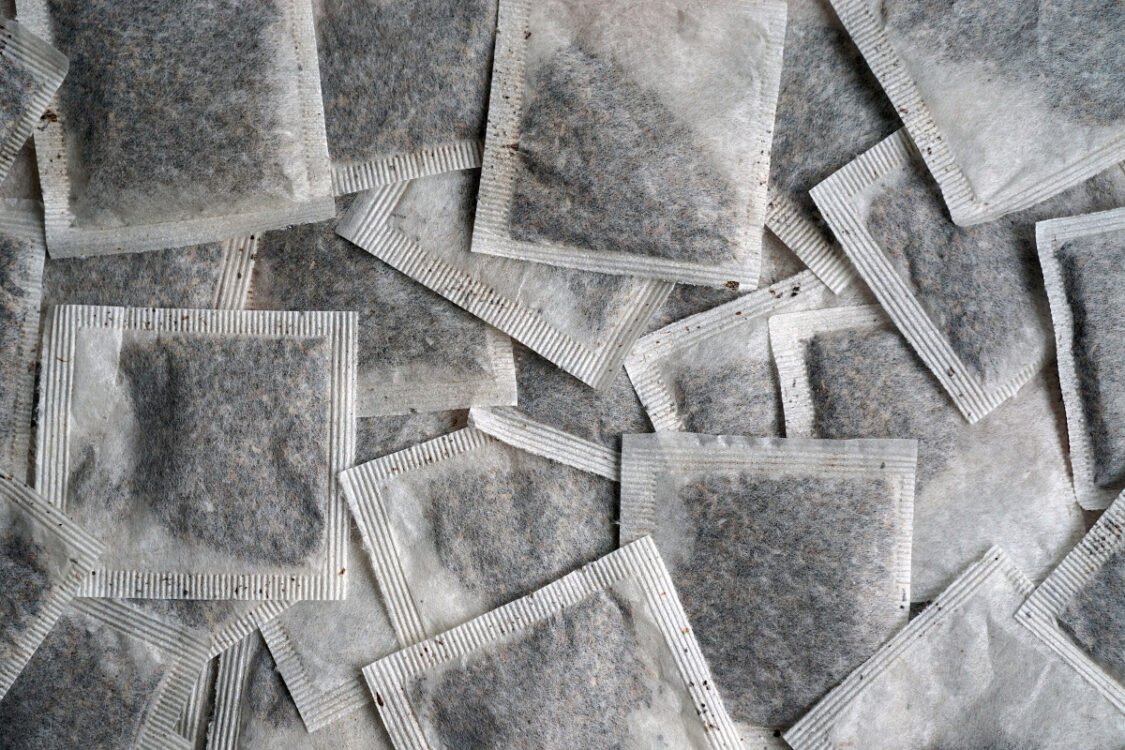Kombucha Side Effects
Does drinking kombucha have any side effects and is it healthy for everyone to consume?

Kombucha Side Effects
While there are many health benefits of kombucha it may cause bloating and digestive discomfort in some people. The most common kombucha side effect, especially for those new to drinking kombucha, are feelings of bloating or slight gastrointestinal (digestive) distress.
Probiotics: If you and used to consuming probiotics on a regular basis (yogurt, kefir, kombucha, sauerkraut, pickles, miso, tempeh, kimchi) the introduction of these bacteria into your digestive system, can cause temporary discomfort until your body gets used to regular kombucha consumption.
This typically only last for the first few days after you start taking them. You may try cutting back on the quantity you consume at once and gradually increase the amount over several days to allow your body to adjust.
Carbonation: Kombucha is typically served carbonated although it can be consumed after the first fermentation when it has less carbonation. Since carbonation is gas (CO2) dissolved into a liquid (kombucha), when you drink a carbonated beverage, the gas can put pressure on your stomach leading to a bloated feeling.
FODMAPs: Kombucha contains high levels of FODMAPs. FODMAP stands for fermentable oligosaccharides, disaccharides, monosaccharides and polyols, which are short-chain carbohydrates (sugars) that the small intestine absorbs poorly.
FODMAPs can cause digestive distress for some people. FODMAPs are carbohydrates found in certain foods, including wheat and beans that are not fully absorbed in the intestines. These unabsorbed carbohydrates are a prefect food for bacteria in our gut which can lead gas and bloating.
Serious Kombucha Side Effects
Kombucha is an unpasteurized beverage which contains a mix of several live bacteria and yeast cultures. It contains a plethora of good/probiotic bacteria yet because it is unpasteurized, it can promote the growth of opportunistic bacteria that can lead to infections in certain people.
People with healthy immune systems can handle these unwanted kombucha bacteria without issue; however, certain populations should likely avoid kombucha due to the possibility go serious kombucha side effects.
- Immunocompromised people, such as those with autoimmune diseases, cancer, or kidney disease or HIV, can develop serious complications from drinking kombucha
- Young children, who’s immune systems may not be fully developed yet.
- Pregnant and breastfeeding women, who may be more susceptible to infection, and who should avoid the small amounts of alcohol and caffeine in kombucha.
Caffiene and Alcohol Effects
Since kombucha is made with tea it contains small amounts of both caffeine and alcohol, which can have varying effects on people, depending on their sensitivity to these compounds.
There are about 10 mg of caffeine per 8 ounce serving of kombucha. This is much less than the 47 mg of caffeine in an 8 ounce serving of black tea or 95 mg for coffee; however, it may still cause effects in people with sensitivity to caffeine. Effects of caffiene include anxiety, jitters, nausea, nervousness, and digestive distress. Caffiene can also lead to insomnia so you may want to limit your kombucha consumption in the evening.
Kombucha also contains trace amounts of alcohol. Commercial kombucha is required to have less then 0.5% alcohol by volume. Home brew kombucha may contain higher amounts than store bought kombucha- up to 2% depending how it was made.
There is also a small amount of sugar left in kombucha after fermentation. Read how much sugar is in kombucha for more information

Contaminated Kombucha
If your kombucha is with fungus, mold, or bad strains of bacteria, it can be dangerous to consume regardless how healthy your immune system is. Drinking contaminated kombucha can lead to an upset stomach upset, allergic reactions, nausea, neck and head pain, and even death. Never taste or drink contaminated kombucha!
When making kombucha at home use only high quality, fermentation-safe materials to avoid contamination. Kombucha should always be brewed in non-reactive glass or ceramic containers. Plastic containers are porous and can harbor bacteria in these pores and any scratches. Metal containers can be reactive and leach toxic metals into your kombucha.
Keep your fermentation supplies, tools and process as clean as possible. Clean and sterilize all tools and containers regularly before each use.
Finally, don’t risk it. Throw away the entire batch and start over if you observe any mold, and be aware of any changes to the look or taste of your brew over time.
Helping you learn to brew kombucha, find inspiration for new kombucha flavors and use kombucha to make kombucha mocktails




